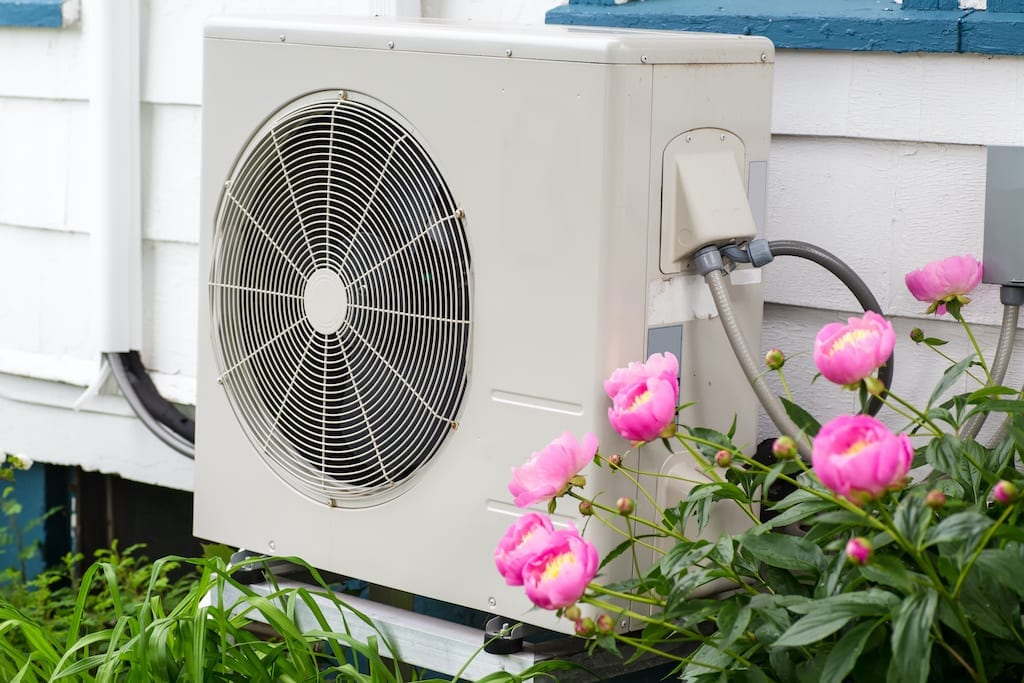 With advanced technology making heat pumps increasingly effective in climates like Maine’s and generous state rebate programs, it’s no surprise that the interest in heat pumps continues to increase in Maine and across the nation. In fact, according to the U. S. Department of Energy (DOE), which divides the U.S. into eight climate zones, modern heat pumps in a properly designed system can provide all the heat a home will need up through zone 6. However, in zones 7 and 8 — which include the northern parts of North Dakota, Minnesota, Wisconsin, Michigan, Maine, and all of Alaska — Consumer Reports explains that “even today’s cold-climate heat pumps might not provide adequate heat. You’ll likely need a backup heating system if you live in one of these areas.”
With advanced technology making heat pumps increasingly effective in climates like Maine’s and generous state rebate programs, it’s no surprise that the interest in heat pumps continues to increase in Maine and across the nation. In fact, according to the U. S. Department of Energy (DOE), which divides the U.S. into eight climate zones, modern heat pumps in a properly designed system can provide all the heat a home will need up through zone 6. However, in zones 7 and 8 — which include the northern parts of North Dakota, Minnesota, Wisconsin, Michigan, Maine, and all of Alaska — Consumer Reports explains that “even today’s cold-climate heat pumps might not provide adequate heat. You’ll likely need a backup heating system if you live in one of these areas.”
The best answer is “it depends.” Because heat pumps run on electricity, they are often considered the “green” option to heat and cool your home and/or business. However, it’s important to note that nearly 50% of the electricity of New England’s power grid is generated by the burning of fossil fuels. Heat pumps can most definitely be greener than energy systems that rely on traditional natural gas or propane, but higher blends of Bioheat® fuel — home heating fuel made from organic and recycled products like soybean oil, used cooking oils, inedible corn oil, canola, tallow, fats and algae — are an incredibly “green” option as well! In fact, according to the U.S. Department of Agriculture and the California Air Resources Board, Bioheat fuel offers a reduction of 50% to 86% of greenhouse gas emissions, and you can use it without making any changes to your existing oilheat system.
Highly efficient between 20°F and 80°F, a heat pump is a mechanical-compression cycle refrigeration system that runs on electricity and can either heat or cool a space. Here’s how it works:
Heat pumps have some drawbacks that are important to consider if you’re considering having a heat pump system installed in your home. One of those potential drawbacks is the question of temperature uniformity compared to traditional heating systems. Small wall-mounted heat pump systems may not deliver a uniform temperature within a home. Another important consideration is whether you should maintain a backup heating system to supplement a heat pump system during Maine’s harsh winters. Prolonged sub-zero temperatures can add to your overall heating cost as well as negatively affect efficiency.
In addition, keep in mind that you will need to check the outside portion of an air-source heat pump regularly to ensure debris such as leaves, snow or ice don’t interfere with free airflow, which is necessary for optimal heat pump performance.
So, if you are considering purchasing a heat pump, contact your local heating professional to learn what will work best for you and confirm that it is the best move for your energy needs.